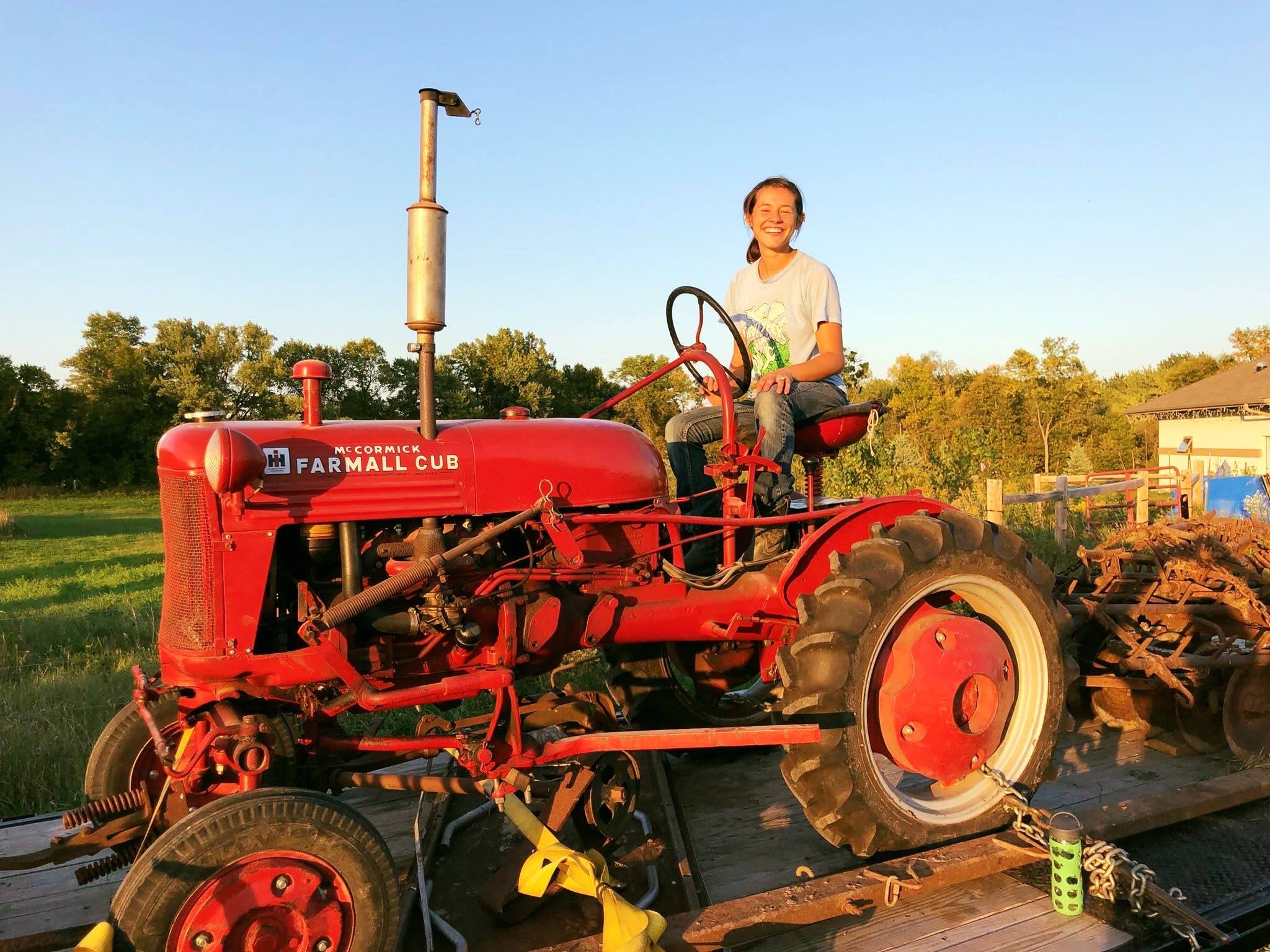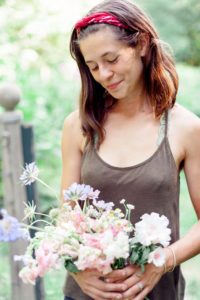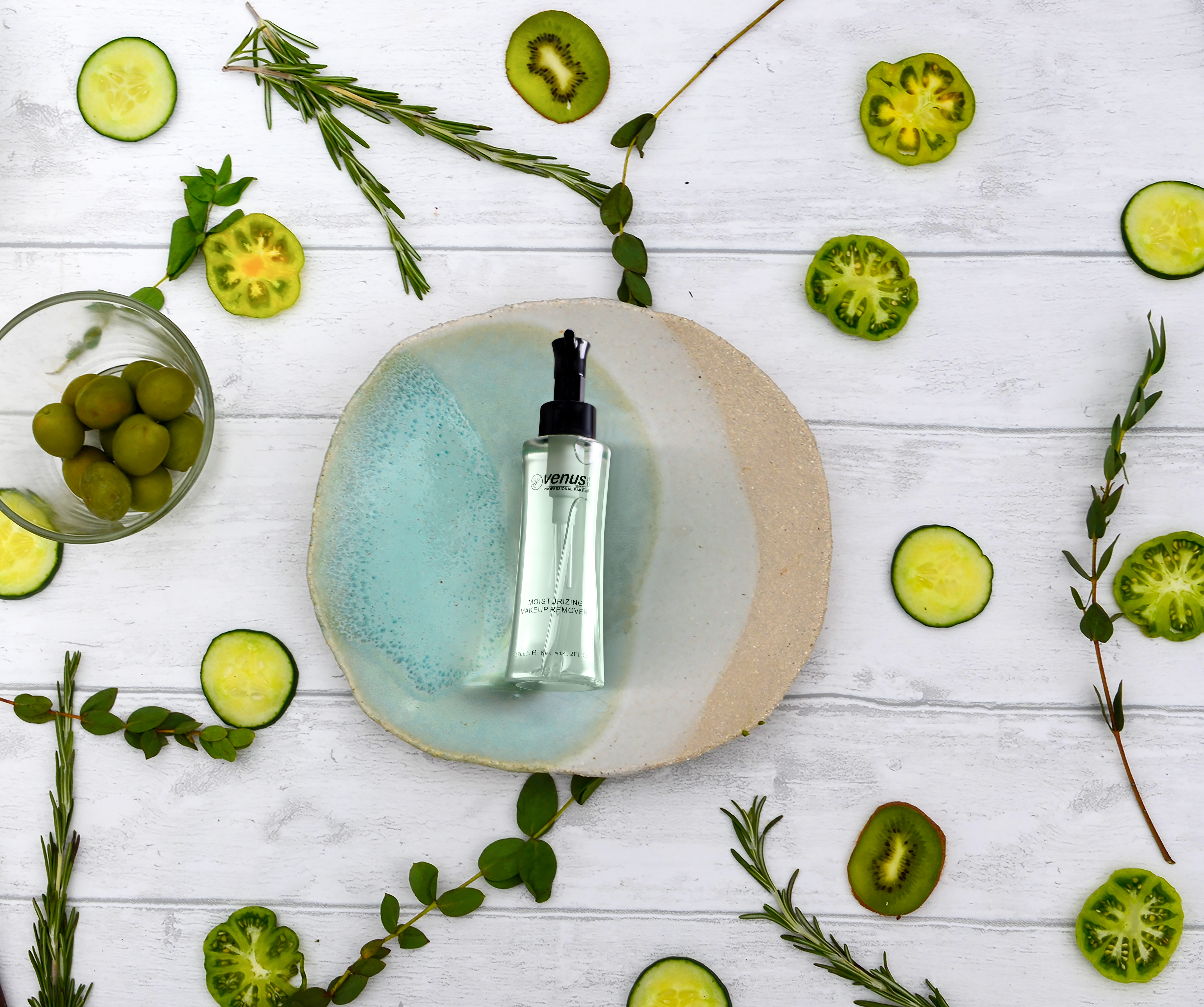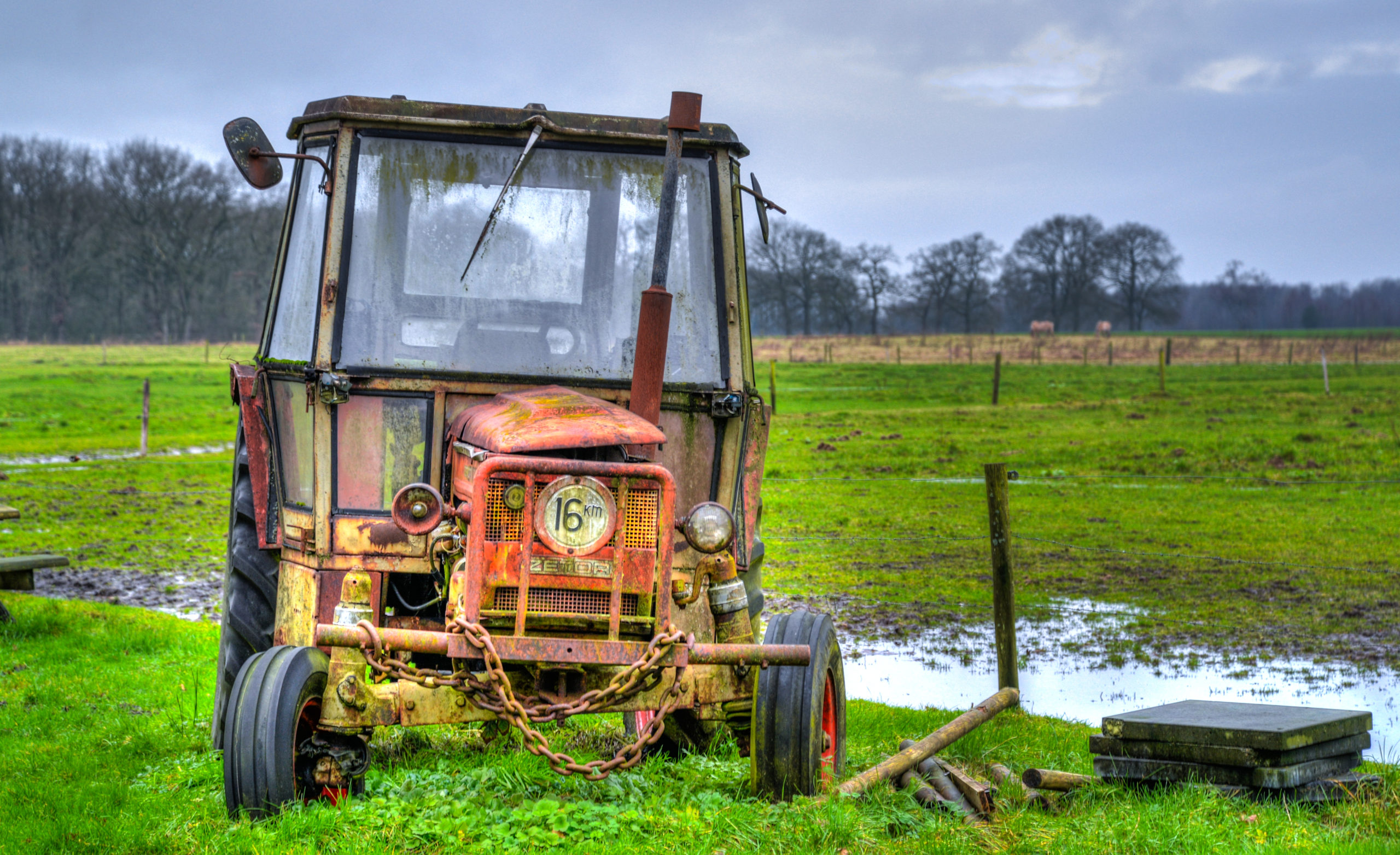Minnesota Farmer Rachel Brann Grows Local Flowers In A Changing Climate
Living in the Chicago suburbs, I first got the bug to become a farmer as a young teenager when my parents “volunteered” me to work a day on a local farm. Surprise – I loved the work so much! I really enjoyed being outside, and I enjoyed the communal aspect of the work. It felt good to be working with my hands in the soil, alongside folks I admired, and seeing what an hour of hard work could do to a weedy field bed.
It just went from there. I continued to volunteer there all throughout high school and then I went to college at the University of Minnesota to study Horticulture, with an emphasis on sustainable and local markets. That put me in courses that taught me a lot about plants and how they grow, and our soils, and our weather, but also to be a decent businessperson.
Part of my time at the university was that I took an internship at a small diversified farm outside of Clearwater, which gave me a crash course in all different types of agriculture, including flowers. Sharing the beauty of flowers with people was a really different kind of nourishment than selling them a zucchini. And that really stuck with me.
Rachel Brann’s Pluck Flower Farm is in its third season of growing flowers for all occasions throughout the Twin Cities and beyond.
When I had the opportunity to begin my own farm when we bought the property we now live on in 2017, I only had maybe a couple hundred dollars and hand tools. But I knew I could grow flowers with that, and so that’s where I started. Since then, three years later, it’s really expanded so that now my full-time job is growing flowers. I probably sell about 60% of my flowers at the Linden Hills farmers market. It’s the only farmers market I do consistently, and then otherwise I sell mostly wholesale.
Now, the regular channel for getting flowers for most folks is to hop into the car and go to the store. But most of those flowers actually are flown from Europe or South America. We know that people flying on planes isn’t a good thing for carbon emissions. If folks realized how far these things fly, and how maybe the items we take for granted, like flowers, are more frequent flyers than us – what that would spark in peoples’ minds.
But it’s not feel-good to tell someone they are doing it wrong, to put the blame on them. So instead I share with my customers that when you buy from me, or someone like me who is farming on a smaller scale, we keep in mind our ecology, water health, and the health of all the beings that rely on local resources. If you keep those things in mind when you’re farming on a smaller scale, and you’re only transporting your flowers locally, think just how much good that does.
What motivates me to protect the many living things around our rural homestead
We live just outside of Foreston, Minnesota, which is a pretty small town, and then the next closest place would be Milaca. We live fairly rurally. We’re on a 40-acre homestead. Ever since we moved out here 3 years ago, I have noticed how many living beings rely on the bounty of woods and meadows, and swamps and all the things we have on our farm. And I think about all these creatures and what it means to be on this earth, living alongside them, and I don’t want to jeopardize any of that. It’s just too beautiful. So, I always think about what my actions do to preserve the balance or to undermine it. And I try to be careful.
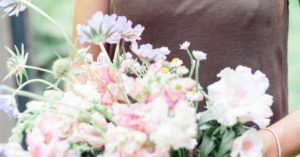 We all most certainly have a responsibility to nature, whether we feel nature around us or not. It’s just how aware of it we are. Especially seeing all the resources that we have around us. When I go into the cities, we generally drive by the trash dump in Elk River, and its smell and presence are hard to ignore. I think about how that’s where all our refuse goes. I think about the impact all our decisions make. And I try to think about what I can do better.
We all most certainly have a responsibility to nature, whether we feel nature around us or not. It’s just how aware of it we are. Especially seeing all the resources that we have around us. When I go into the cities, we generally drive by the trash dump in Elk River, and its smell and presence are hard to ignore. I think about how that’s where all our refuse goes. I think about the impact all our decisions make. And I try to think about what I can do better.
Talking to farmers about the personal experience of climate change
I talk about climate in terms on how it looks on my farm and on my neighbors’ farms. We had just an immensely, immensely wet spring in 2019. It was extremely hard to get everything into the field this spring for myself, and I’m growing on a very small scale. The majority of the farm fields that surround our property went unplanted this year. It was just too wet all the way through part of June. It just became too late in the season, and so our neighbors had to choose not to plant.
And that was a really, really hard decision for them. Those fields haven’t gone fallow like that in probably a hundred years. My neighbors haven’t seen that in their lifetime. That was really painful for all of us to see all season. I was lucky my plants made it through that. But that certainly isn’t the case for so many farmers.
When you put the local context in what I am experiencing and what my neighbors are experiencing and then you extrapolate that to farms across the state and across the country this season, you can see the effect of our weather becoming so much more variable. We have to adapt from season to season.
Yet sometimes financially we can’t adapt. Farm financials are already hard as it is. When you add variable weather like that, sometimes there’s nothing you can do.
Joining ULLU because of an urgent need to act now to address climate change
We had Richard and Kate come out to the farm in May 2019 to talk about our feelings on climate change. That spring the weather was really, really terrible — I can’t emphasize that enough. I found myself in a desperate space, thinking of future springs, how maybe all our future springs may be this wet and challenging. It was really hard to be living in that day in and day out. After the conversation we had that day, I began a journal solely documenting the weather and how I was feeling about our climate and our farm, to create space for myself. The weeks after continued to be challenging. I remember a time where the weather was so wet and the soil so saturated I completely gave up working in my field for the week.
I do believe that there is a cause and effect between our unusual weather and climate change. When you look at the data and you see the higher average temperatures and you see the uptick in hundred-year floods and other weather to that affect and you see the rising levels of CO2 in our atmosphere, I can’t tell myself that is somehow naturally occurring. Or that it will go back down without any action on our part. And I know it is not good for the systems that we have in place. Our systems are failing as a result of these changes. And so, when I think about all those things, I can’t help but to connect the dots.
And, I feel such a deep obligation that, because I can connect the dots, it means that I need to do something. I don’t want to wait for someone else to fix this. I feel a sense of urgency, around the action and adaptions we need to make in communities everywhere. I can’t ignore it.
And after that initial conversation in May, ULLU seems like the right outlet for the energy that I’m feeling and the work I want to do and what I want to see come from conversations like I had had that day. It was a really emotional conversation. I haven’t forgotten about it since then and I think about it often.
Connect with or follow Rachel and Pluck Flower Farm on Instagram.

